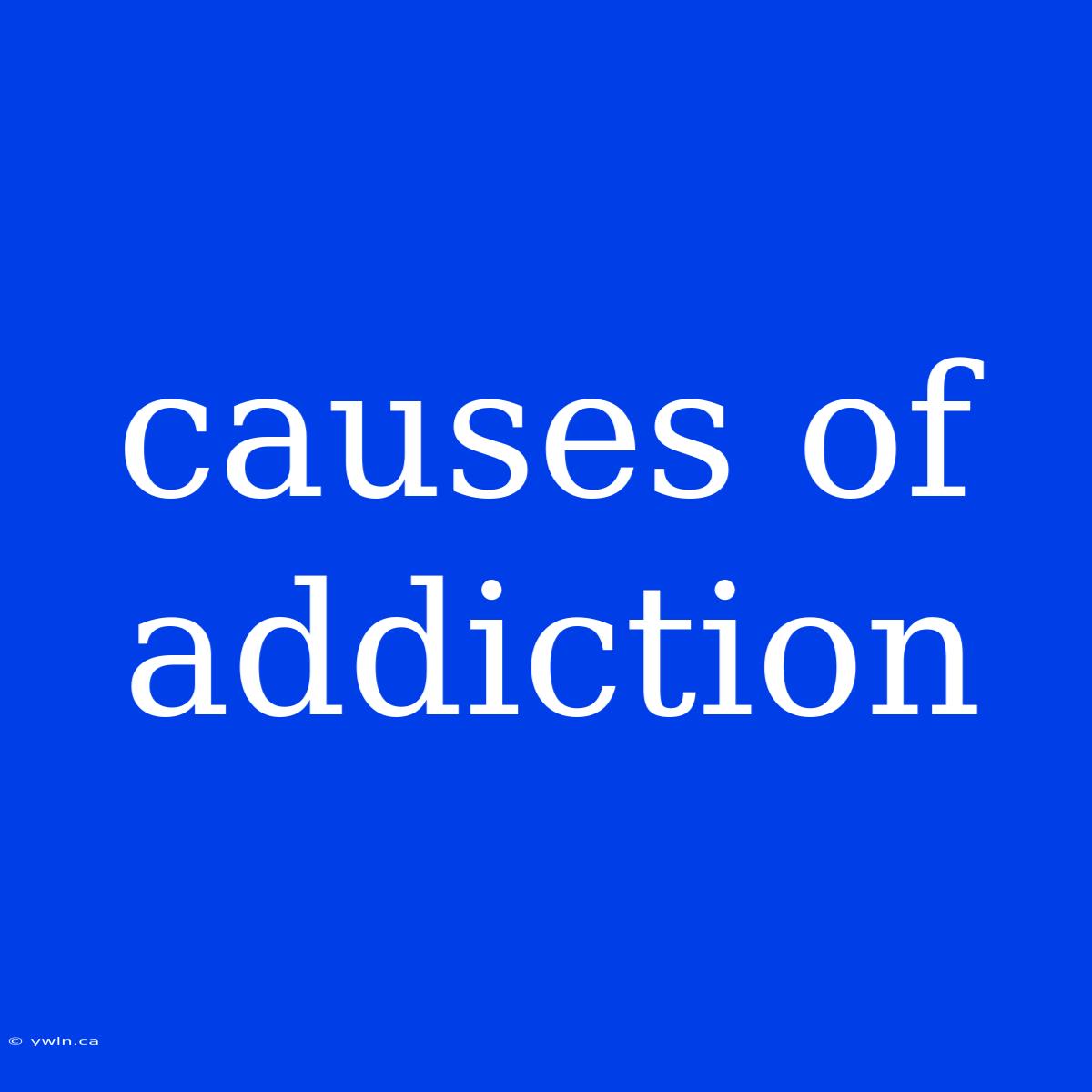Unraveling the Complex Web: Causes of Addiction
What causes addiction? Addiction is a complex and multifaceted condition, often fueled by a combination of factors. It's not as simple as a lack of willpower; rather, it's a powerful interplay of biological, psychological, and social influences. Editor Note: This article delves into the intricate web of causes behind addiction, providing crucial insight for understanding and tackling this pervasive issue. Understanding these causes is essential for effective prevention, treatment, and support for individuals struggling with addiction.
Analysis: This article delves into the multifaceted nature of addiction, exploring the biological, psychological, and social factors that contribute to its development. Through a comprehensive analysis of these factors, it aims to shed light on the intricacies of addiction and offer a nuanced understanding of its causes.
| Key Takeaway | Description |
|---|---|
| Biological Factors | Genetic predisposition, brain chemistry, and neurotransmitter imbalances. |
| Psychological Factors | Mental health conditions, trauma, coping mechanisms, and personality traits. |
| Social Factors | Peer pressure, cultural norms, availability of substances, and environmental influences. |
Causes of Addiction
Addiction is a chronic disease that involves a strong craving for a substance or activity, despite its harmful consequences. Understanding the various causes is crucial for addressing this issue effectively.
Biological Factors
- Genetics: Research suggests that a person's genetic makeup can influence their susceptibility to addiction. Certain genes might increase the risk of developing addiction by affecting brain chemistry and reward pathways.
- Brain Chemistry: Drugs and addictive behaviors trigger the release of dopamine, a neurotransmitter associated with pleasure and reward. This creates a powerful feedback loop, reinforcing the addictive behavior.
- Neurotransmitter Imbalances: Addiction can disrupt the balance of neurotransmitters in the brain, leading to changes in mood, cognition, and behavior. This imbalance can make it difficult for individuals to resist cravings and control their behavior.
Psychological Factors
- Mental Health Conditions: Addiction often co-occurs with mental health disorders such as depression, anxiety, and post-traumatic stress disorder (PTSD). These conditions can contribute to the development of addiction by providing a means of self-medication or coping with emotional distress.
- Trauma: Experiences of trauma, such as abuse, neglect, or witnessing violence, can increase the risk of developing addiction. Trauma can disrupt the brain's development and regulation of emotions, making individuals more vulnerable to addiction.
- Coping Mechanisms: Some individuals may turn to drugs or addictive behaviors as a way of coping with stress, anxiety, or other difficult emotions. While these behaviors may offer temporary relief, they can ultimately lead to addiction.
- Personality Traits: Certain personality traits, such as impulsivity, risk-taking, and sensation-seeking, can increase the likelihood of developing an addiction. These traits can make individuals more likely to engage in behaviors that are associated with addiction.
Social Factors
- Peer Pressure: Social influences, particularly from peers, can play a significant role in the initiation and progression of addiction. This pressure can stem from the desire to fit in, be accepted, or experience the perceived benefits of drug use.
- Cultural Norms: Cultural attitudes and norms surrounding substance use can also influence addiction rates. In some cultures, drug use may be more socially acceptable, leading to higher rates of addiction.
- Availability of Substances: The availability and accessibility of drugs and addictive substances are major contributing factors to addiction. Increased availability often leads to greater exposure and increased risk of developing addiction.
- Environmental Influences: The environment in which a person lives, including their family dynamics, socioeconomic status, and access to resources, can all influence their susceptibility to addiction. For example, individuals living in poverty or experiencing social isolation may be at higher risk for addiction.
Conclusion
Addiction is a complex and multifaceted issue with no single cause. It's a combination of biological, psychological, and social factors that interact in intricate ways. Understanding these causes is essential for developing effective prevention strategies, treatment interventions, and support systems for individuals struggling with addiction. By addressing these underlying factors, we can work towards reducing the prevalence of addiction and improving the lives of those affected.

